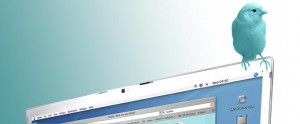 A few years back, an innovative anti-pirating tech company called MediaDefender had all its internal emails hacked.
A few years back, an innovative anti-pirating tech company called MediaDefender had all its internal emails hacked.
The perpetrator, buoyed by all those file-sharing fanatics who detested their nemesis, were thrilled to see MediaDefender’s intellectual property make daylight. It cost the company dearly in both dollars and reputation.
(I won’t date myself by recounting the story of private investigators hired by Larry Ellison to rummage through competitor Microsoft’s personal garbage for useful tidbits.)
I’m not sure what I think of TechCrunch’s decision to publish some of the internal documents pilfered from Twitter’s server and sent to the tech influencer by some randoid named Hacker Croll. TC’s proprietor, one Mr. Arrington who’s fond of breaking (setting new?) rules of journalism, reviewed the material and decided to go forth and publish those he determined had news value:
“There is clearly an ethical line here that we don’t want to cross, and the vast majority of these documents aren’t going to be published, at least by us. But a few of the documents have so much news value that we think it’s appropriate to publish them.”
Of course this decision produced a fair share of condemnation to which Mr. Arrington (to his credit) maintained an open dialogue:
“Many users say this is “stolen†information and therefore shouldn’t be published. We disagree.
We publish confidential information almost every day on TechCrunch. This is stuff that is also “stolen,†usually leaked by an employee or someone else close to the company, and the company is very much opposed to its publication. In the past we’ve received comments that this is unethical. And it certainly was unethical, or at least illegal or tortious, for the person who gave us the information and violated confidentiality and/or nondisclosure agreements. But on our end, it’s simply news.”
So here’s the first TechCrunch post culled from the dubiously obtained documents:
The second post was a bit more squirrely
- “Twitter’s Financial Forecast Shows First Revenue In Q3, 1 billion users in 2013” in which Mr. Arrington wrote:
“Our negotiations with Twitter (or rather Twitter’s lawyers) over our intention to publish a small subset of the 310 hacked confidential documents continue. We published the first document, a pitch for a reality television show called Final Tweet, earlier this morning.
Far more interesting, though, is this internal Twitter financial forecast from February 2009.”
I must admit it’s entertaining, if not ethically questionable. I also wonder whether Twitter would find itself in such a compromised, Schadenfreude-driven position if it hadn’t cultivated such a high (i.e., hyperbolic) media profile.
How the heck was this company hacked anyway???? Geesh.